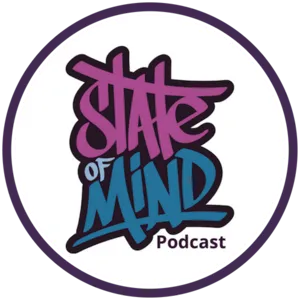Podcast Summary
Navigating the Twenties: Creating a Dream Life on Your Own Terms: In your twenties, prioritize building a life that brings you true happiness and fulfillment, free from societal pressures and expectations.
Our twenties bring about significant changes and transitions that can impact our psychology. It is important to focus on creating our dream life during this time by considering various aspects such as careers, finances, love, friendships, and personal growth. Building meaningful relationships and making choices in love and dating can be a source of concern, as we fear making mistakes or having regrets. The media often presents a glamorous idea of how our twenties should look like, but it is essential to remember that everyone's idea of happiness and fulfillment is different. We should focus on what brings us true happiness and not be swayed by societal expectations.
Letting go of unrealistic expectations and embracing personal growth in our messy twenties.: Our twenties are a time for growth, embracing freedom and chaos, and learning from mistakes without fear of regrets. Comparing ourselves to unrealistic expectations only holds us back.
We should let go of narrow ideas about our lives, based on unrealistic expectations or fictional depictions. Comparing ourselves to a romanticized fantasy can make us feel like we're falling behind or missing out. However, when we give ourselves the freedom to live our own experiences and make our own special memories, our lives often turn out better than we had imagined. Our twenties are messy and filled with intense emotions, and it's important to remember that everyone is feeling a bit stuck in some aspect of their lives. There is no right way to live this period, but we have the opportunity to embrace freedom, chaos, and emotional richness. While it's important to say yes, take risks, and create good stories for our future selves, we should also prioritize personal growth and not put too much pressure on ourselves. We should live our own story and learn from our mistakes without fear of life-ending regrets.
Navigating Expectations and Prioritizing Friendships in Your Twenties: In our twenties, it's important to prioritize authentic friendships and remember that we can't do everything at once. Treating everyone like our best friend can lead to fulfilling connections.
In our twenties, we often feel pressured to live up to certain expectations and ideals. We are bombarded with contradictory messages about what our lives should look like during this decade. However, it's important to remember that we can't do it all at once. Our twenties are full of seasons, and it's okay to prioritize different aspects of our lives at different times. One area that can greatly influence our twenties is our friendships. While it may be challenging to make friends as adults, it's crucial to prioritize authentic, meaningful connections. Treating everyone we meet as if they were already our best friend can help us cultivate a supportive and fulfilling friendship group.
Embracing New Connections and Experiences in Our Twenties: Being open-minded, attending parties, and treating everyone as a potential friend can lead to meaningful connections and overall well-being in our thirties. Don't let fear and judgment hold you back.
It is important to say "yes" and be open to new connections and experiences. During our twenties, we should socialize with an abundance mentality and not limit ourselves to certain people or become too comfortable. We should attend parties and engage in new situations, even if we don't know anyone. It's okay if some connections don't work out because it's worse to miss out on potentially meeting someone wonderful due to fear of judgment. Additionally, treating everyone as if they are already our best friend and practicing reciprocity can help foster new relationships. It's also important to remember that someone else's opinion of us is not our problem. Finally, quantity and variety of friendships in our twenties can lead to better friendships and greater psychological well-being in our thirties. However, we should also nurture quality, long-term friendships.
Nurturing Long-Term Friendships: Maintaining long-term friendships is essential for stability and emotional support. By making an effort to stay connected, value their presence, and create new memories together, you can build a strong and lasting sense of community.
Maintaining long-term friendships is crucial for stability, emotional consistency, and a sense of community. Friends who have known you for a long time understand you better than you know yourself and have supported you through difficult times. While it can be challenging to maintain these relationships when living in different cities or busy with new responsibilities, it is important to make the effort. Sending occasional texts or organizing FaceTime calls show that you value and appreciate their presence in your life. Additionally, taking the initiative to create new memories and inviting both old and new friends to activities strengthens the sense of community and builds deep connections. Creating a dream social circle requires taking agency and being the instigator. By actively planning and inviting others to wholesome activities, such as dinner nights or painting parties, you can foster a strong sense of connection and make lasting memories together.
Navigating Friendships in Our Twenties: Beginnings, Endings, and Taking Responsibility: As we navigate friendships in our twenties, it's important to recognize that some relationships may come to an end, and that's okay. Prioritizing compatibility and letting go of relationships that no longer bring positivity is essential for our own growth and happiness.
Friendships in our twenties are not just about new beginnings, but also about endings. It is essential to realize that we have to be the captain of our own journey and take responsibility for our own memories. We should not be afraid to let go of people out of nostalgia or loneliness. Friendships can be categorized as a season, a reason, or a lifetime, and it is natural to let some relationships go as we grow and change. There is a limitation to the number of social relationships we can handle, and the golden number of close friends is no more than 10. It is crucial to prioritize compatibility and not hold onto relationships that no longer bring joy or positivity to our lives.
Embracing Solitude: The Key to Personal Growth in Relationships: Taking time for ourselves, embracing solitude, and learning about ourselves are crucial steps in developing healthy relationships and personal growth.
Young love is a psychologically significant experience that shapes our development in our twenties. While there is no right way to navigate relationships, it is important to avoid wasting time with individuals who do not contribute to our growth or genuinely show us love and attention. Instead, we should prioritize spending time alone and embracing solitude. Being comfortable with our own company allows us to learn more about ourselves, build self-awareness, and improve the quality of our relationships. Solitude should not be stigmatized or seen as an inconvenience, but rather as an empowering experience that enhances introspection and self-awareness. By dedicating at least one day a month to being alone, we can learn that our existence and experiences are valuable regardless of someone else's validation. Developing the skill of being alone during our twenties will benefit us in the future.
Embracing solitude and selective relationships for personal growth and empowerment.: It's important to prioritize self-discovery and avoid toxic relationships to foster personal growth, even if it means being single for a while.
It is better to be alone than in a situation that doesn't serve you. Taking the time to enjoy your own company and savor moments of solitude allows you to truly know yourself and be yourself without the influence of others' opinions, judgment, or validation. Being unafraid to be alone also empowers you to walk away from relationships that are toxic or demanding, especially during your younger years. Love should enhance your life, not constrain it, and clinging onto relationships that aren't working out can hinder your personal growth and development. The relationships we have in our twenties can shape our attachment style and influence our future connections, so it's important to be selective. It's better to be single and wait for the right person than to settle and risk questioning your worth and decisions later on in life. Therefore, staying single as long as possible can be a wise choice.
Prioritizing self-discovery before seeking love: Knowing ourselves before pursuing relationships leads to attracting the right people and allows for personal growth through heartbreak and deep connections.
Our twenties are a crucial time for self-discovery and personal growth. It is important to prioritize knowing ourselves better before seeking romantic relationships. Time is limited, and it should be divided between various priorities and obligations. Falling in love with ourselves and understanding our wants, needs, values, and strengths is attractive and brings the right people into our lives. Relationships should not be pursued out of desperation or to fill a void, but rather when we have a clear sense of who we are as individuals. Embracing heartbreak and experiencing deep, vulnerable connections can be painful but also transformative, leading to greater empathy, self-awareness, and creativity. Each heartbreak teaches us valuable lessons and shapes our future.
Navigating Emotions and Building Confidence in your 20s: Embrace your emotions, let go of ego, address childhood trauma, and build confidence to invest in your future well-being during your transformative 20s.
Personal growth in our twenties involves embracing the full spectrum of human emotion and letting ourselves be vulnerable to love and heartbreak. By experiencing and processing these emotions, we deepen our connection to life and gain valuable insights. Additionally, it is important to let go of our ego and become open to new experiences without feeling either undeserving or entitled. Unpacking and addressing our childhood trauma and emotional wounds is crucial during this decade, as these experiences can continue to impact us in adulthood. By engaging in introspection and self-growth, we make a long-term investment in our future well-being. Lastly, building confidence through "fake it till you make it" helps us overcome self-doubt and fully embrace this transformative period of our lives.
Taking Care of Our Well-being in Our Twenties: Prioritizing mental and physical well-being in our twenties through self-confidence, self-care, therapy, and engaging hobbies can lead to a happier and more fulfilling life.
Taking care of our mental and physical well-being is essential in our twenties. Our minds have the power to influence our moods, so pretending to be confident and self-assured can actually lead to real feelings of self-confidence. Additionally, we should prioritize self-care and treat our bodies with kindness because they are our forever homes. Small gestures of gratitude towards our bodies go a long way in maintaining our overall health. Seeking therapy is another important step towards self-awareness, allowing us to understand our triggers and childhood wounds. By addressing these issues early on, we can avoid potential regrets and make more informed decisions. Lastly, finding hobbies and activities that bring us joy and engagement is crucial in preventing us from becoming one-dimensional beings. These hobbies keep our minds alive and contribute to our overall happiness and fulfillment.
Embrace joy and silliness to navigate challenging times.: Prioritizing fun and play helps maintain emotional well-being, encourages joy-seeking, and keeps the adventure alive in life. Embrace excitement and approach everything with enthusiasm.
It's important to prioritize having fun and being silly in order to maintain joy and emotional well-being during challenging and overwhelming times. Engaging in play not only has psychological benefits, but it also keeps us grounded in the present moment and encourages us to seek joy in our lives. It's easy to feel the pressure to grow up quickly and lose that childlike wonder, but it's essential to avoid becoming one of those people and instead make a conscious effort to keep the adventure alive and prioritize joy. Making mistakes along the way is part of the journey and provides us with beautiful lessons and stories. So, embrace the excitement and energy in life and approach everything with a sense of liveliness and enthusiasm.





